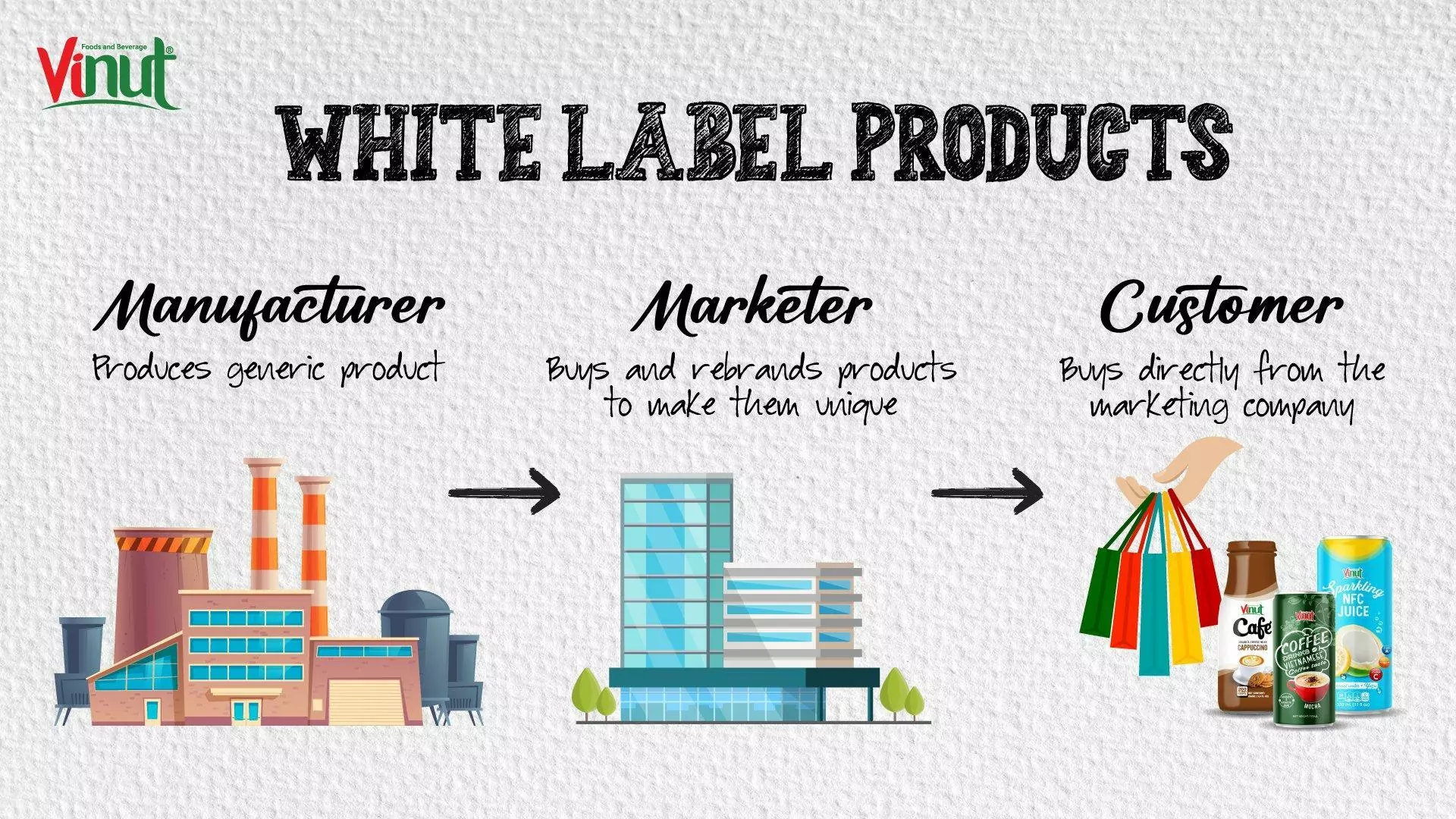White Label – The benefits of production trend

The trend of private label development is increasingly expanding and developing in depth in the distribution market, especially leading distributors-retailers, mainly large supermarkets, are using this form. So what is white label? What are the characteristics and benefits of white labels? What is the current white label trend?A white label or specifically a white label product is a product or service produced by one company (called a manufacturer) that other companies (marketers) remarket to the product before it appeared under the name of this marketing entity. The term white label appears from the image of a white label in the product packaging process before it is printed with the image logo of the marketing unit. White label products are sold by retailers under their own brand name but the product is manufactured by a third party.In the field of branding, which brand to attach, which manufacturer to a product is always decided before the product is launched on the market. In general, there are 3 possible branding scenarios:
1- Products are marketed under the manufacturer’s own brand. Example: Nam Viet Company produces fruit juice under the brand name Vinut. This is the trademark of the company and when the products are launched on the market, they are branded with the Vinut logo and brand.
2- Products are marketed under the brand name of distributors – retailers. For example: A large supermarket does not directly manufacture cosmetics and household goods, but associates or orders a factory to process products labeled by this hypermarket.
3- Products are branded mixed. In this case the product is sold under both manufacturer and distributor brands. For example, the product will clearly state on the packaging who is the company responsible for production, who is the company responsible for distribution.And White Label is the word used to talk about products manufactured by 3rd parties and assigned brands and logos of distributors – retailers. It can be seen that the development trend of white label products is expanding in the distribution market.White label products are manufactured by a third party, not a distributor-retailer, nor a marketing company. Products will be branded by distributors – retailers, which are mainly retailers and large supermarkets. Products are usually distributed exclusively at the points of sale of the distribution organization and are always cheaper than similar products by 5% to 30%.White labels can be considered as a solution with many advantages for businesses because this form helps businesses not need to perform all stages to bring their products to consumers. As a result, enterprises can focus on their main production areas as well as other stages in which they have strengths.
White label products have an additional cost advantage. Because white-label products are often sold by the units that brand the products themselves, marketing, shipping and related costs are saved. White label products are gaining attention, so it also shows that product prices are more interested.White label products and private label products have many things in common, so they can be confused as the same type. But in fact, white label and private label products have certain differences. Accordingly, a private label is a model where a certain manufacturer or brand offers an exclusive line of products to a single retailer. The retailer may customize the product line to the color, size, or other characteristics as desired. White label is the practice of offering a common product category to many retailers at the same time, under different brand styles. Suppliers can sell their products to many units, labeling their brands.
- The manufacturer is a third party: White label or private label, distributors – retailers do not directly make their products.
- The third party manufactures but does not attach its own brand to that product, so they do not participate much in the sales and advertising strategy of the product.
- White label or private label are both forms of B2B business, so the raw product will not be labeled by the manufacturer and consumers can consume the product of the distributor – retailer without knowing it is produced. produced by a third party.
- Investment cost of white label is smaller than private label.
- White label products are usually not as exclusive as private label products.
- White label products are not as customizable as private label products.
- The white label product line can be widely applied in many industries while the private label usually applies to products with not too complicated production processes such as cosmetics, household appliances, clothing, accessories…
The development of white marks is growing, becoming a trend that brings many benefits to suppliers and national brands. And keeping up with the trend will also bring opportunities and challenges for businesses. The game can change as long as you know what you want and find yourself the best and most reputable service provider. Vinut is not only a brand but also a manufacturer with the complete ODM/OEM service you need to bring quality products to consumers and expand brand awareness.
